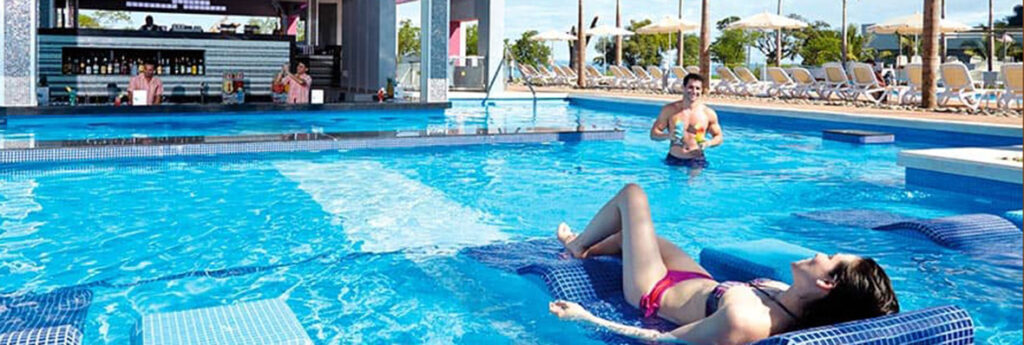Since the reopening of Riu Plaza Berlin on 25 May, up to 31 August, RIU Hotels and Resorts has delivered 22,138 hours of training in the prevention of COVID-19 infection to its staff, by means of an online training system.
The programme includes webinars complemented by face-to-face training on practical application and crisis management, as well as an audit of implementation in all the hotels. The objective of this training, and indeed of the department itself, is to provide the company with the best possible tools and to ensure its efficiency within a global strategy focused on the safety of staff and customers.
Over the months in which RIU’s tourist operations were on hold, the company launched an online training portal in record time, enabling it to start a training programme to create as safe an environment as possible for customers and staff. As a result of this first phase of online learning, the RIU workforce has implemented the 17 safety protocols in the RIU Manual in all the hotel departments: reception, housekeeping, dining room, bar, kitchen and technical services, as well as others.
To ensure the proper implementation of these measures, in each open RIU hotel around the world, an organised structure of roles has been created, headed up by a member of the hotel’s management team who has overall responsibility for compliance with the protocols. Together with the programme director, another key figure in this on-site training is the internal trainer who is in charge of adapting the measures to the hotel’s operations and guiding staff.
Pere Torrens, head of the RIU Hotels training department, explains, “training is the responsibility of every person who has a team in their charge. They are responsible for the teams knowing how to do their jobs. For us, training the staff is one of the main tools for changing the company and people, and a clear example of this is the application of the anti-COVID protocols.”
As well as the online seminars and face-to-face training, a series of essential tools for monitoring, coordinating and communicating with the operational team in the hotels has also been launched through the RIU Hotels Training Portal. Thanks to this tool, RIU has created a learning community where directors and trainers can ask the experts questions and contribute comments or points of improvement based on their experience as they implement the measures.
The purpose is to maintain this constant flow of communication and, above all, to adapt training and knowledge to the new circumstances and to the rules as they are updated in each of the company’s destinations. An example of this is that staff in Spain are developing their awareness, through face-to-face talks, in order to expand the implementation of the prevention and hygiene measures they have learned at RIU into their private and social lives, as it has been detected that this is an area of risk with great potential for improvement. This experience will soon be taken to Mexico too.
At the same time, the consultant Preverisk is undertaking visits to each hotel two weeks after they reopen. The basis for this external audit is a verification list that helps detect possible errors with a view to the hotel team being able to rectify them as soon as possible and apply the changes to the relevant areas. Finally, a second and a third visit take place to ensure compliance and guarantee that the protocols are being implemented properly. From June to September this year, a total of 60 RIU hotels have achieved COVID-19 Hygiene Response certification.

